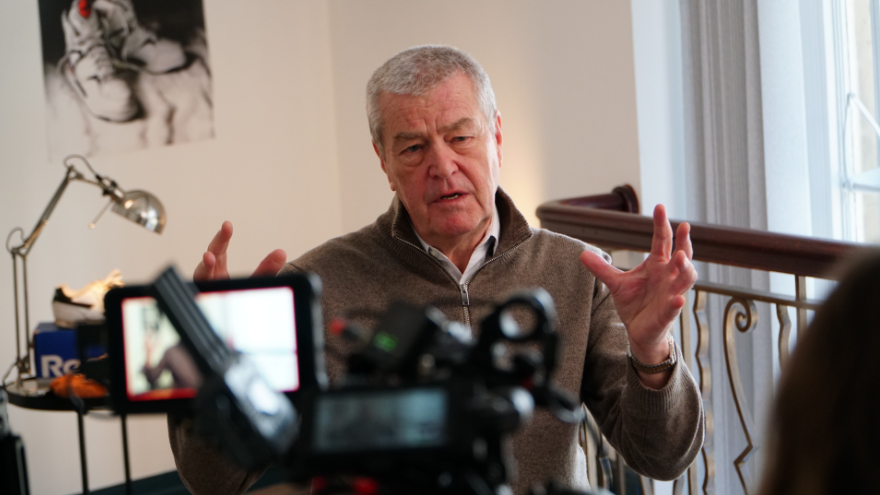Co-founder of £2.5bn brand started out as factory help
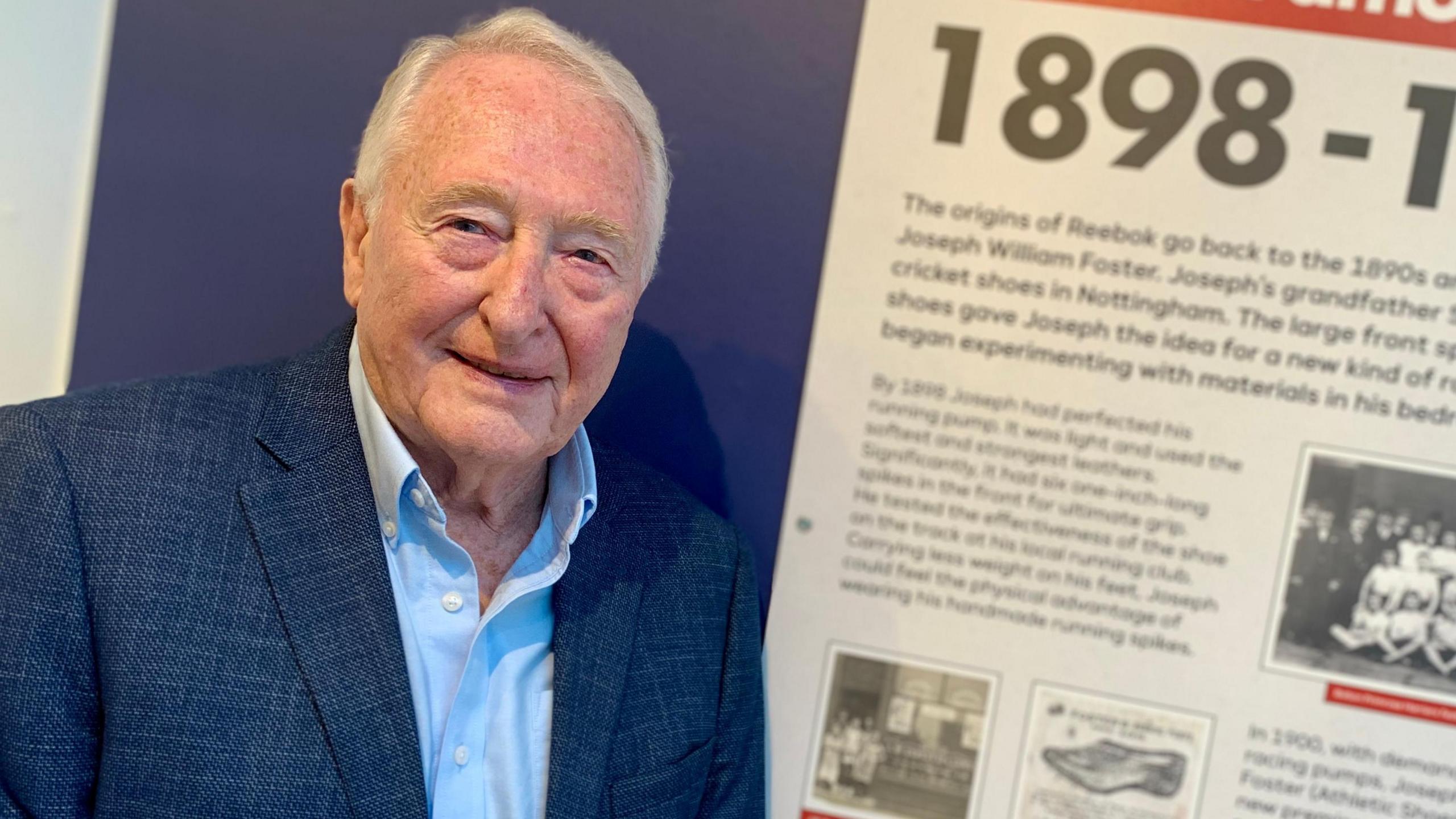
Joe Foster, 90, honed his skills at the family business J.W. Foster and Sons in Bolton
- Published
In 1952, then 17-year-old Joe Foster joined the family business, becoming the third generation to be a part of J.W. Foster and Sons.
It was at the firm's small factory in Bolton, Greater Manchester, where he would learn and fall in love with the art of making athletics and running shoes.
Years later, Joe along with his brother Jeff would set up global sportswear giant Reebok - a brand loved by athletes and actors alike.
His story now features in an exhibition about the origins of Reebok at Bolton Library, which runs until 18 January.
J.W. Foster and Sons was set up in 1895 by his grandfather Joseph William Foster, evolving into one of the earliest mass producers of running shoes.
Its rise in popularity derived from his grandfather's idea to add spikes to running shoes.
"His grandfather used to repair cricket boots and he thought 'why don't I put those in my running boots'," recalls Joe.
The firm's success was cemented when Foster's invention was worn by British athletes Eric Liddell and Harold Abrahams at the 1924 Paris Olympics.
The athletes' triumphs were later immortalised in the film Chariots of Fire.
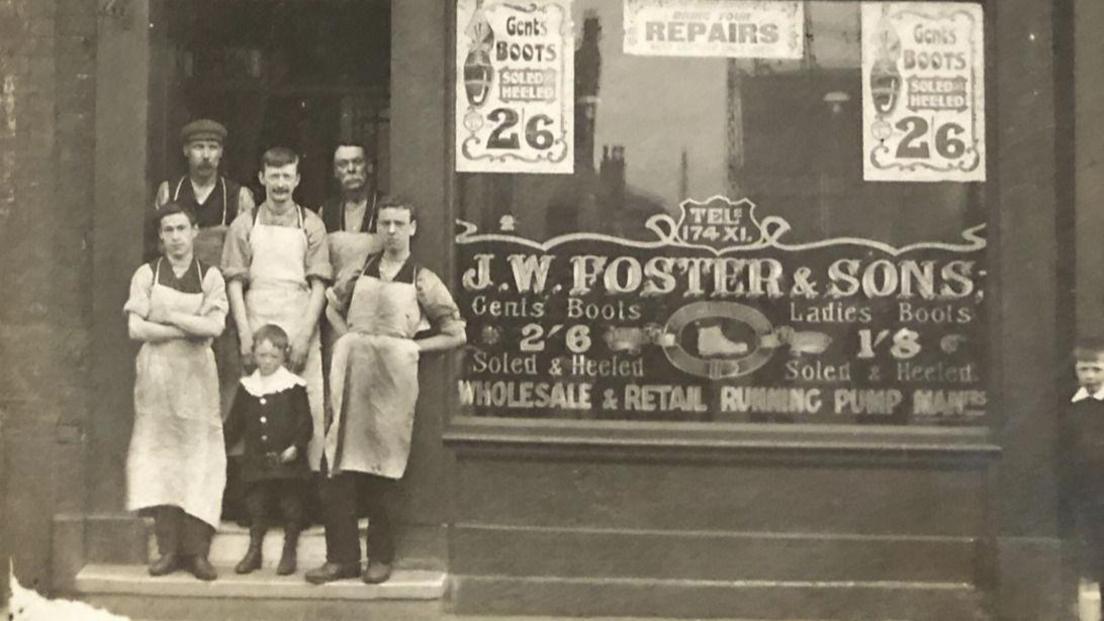
The origins of Reebok date back to the family firm J.W. Foster and Sons
But in the years that followed, Joe and Jeff feared for the future of the company.
"They were going nowhere. So we left and we needed a job so we set up," says Joe.
In 1958, they launched the shoe brand Mercury - but, after discovering this name had already been trademarked, they quickly had to come up with a new name.
So Joe turned to a dictionary he had won as a runner in his younger days.
"The dictionary was there. I opened it up. I like the letter R. I don't know why," he says.
This was when he came across the word "rhebok".
"I thought what's that... It's a small South African gazelle and we're a running company," he says.
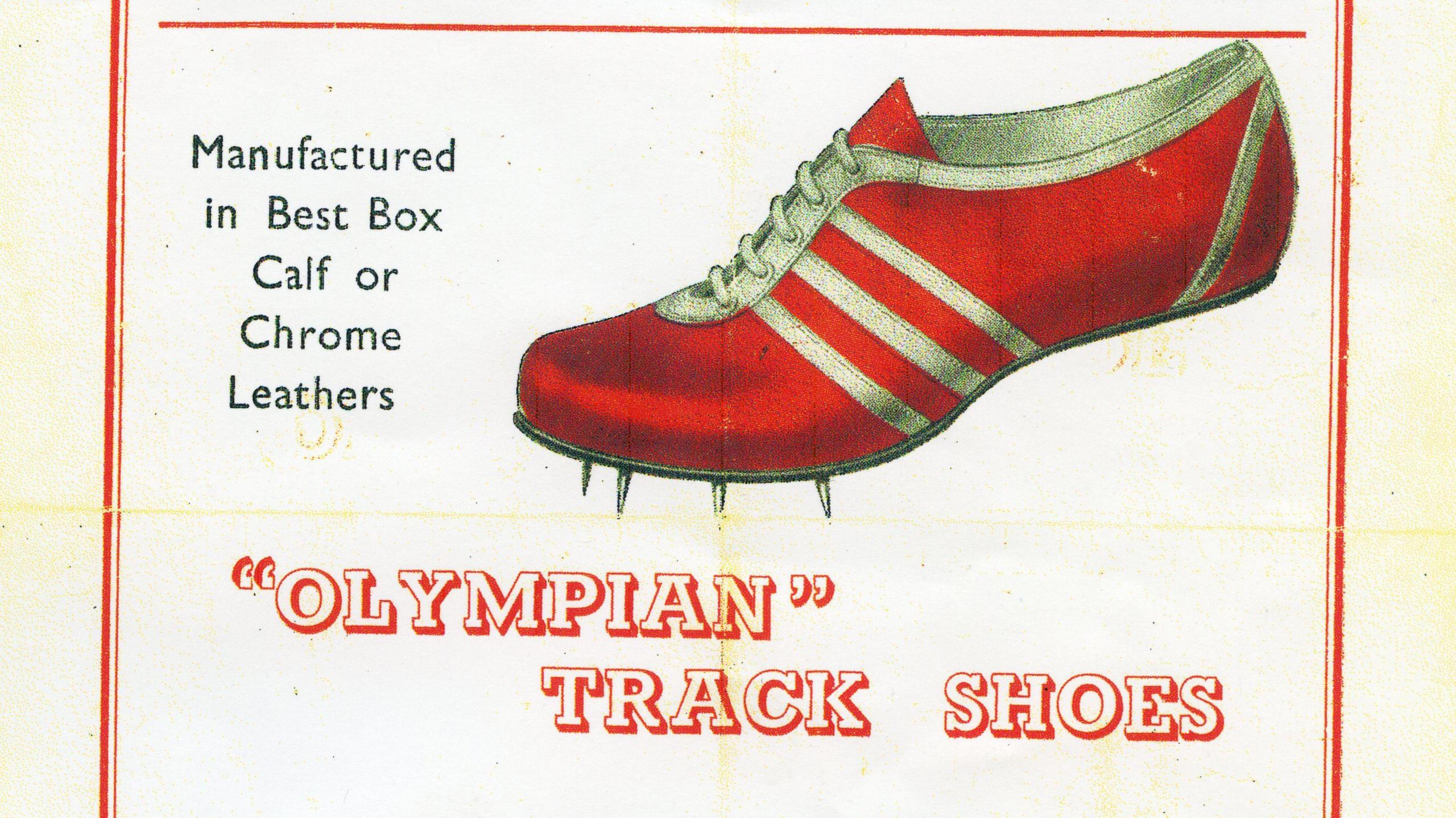
Eager to sell overseas, their breakthrough in the US came when their shoes received glowing reviews in Runner's World magazine.
"Three of our shoes got five-star ratings," he says.
"All of a sudden America wanted us.
"We had been pushing for 10 years and on the 11th year they wanted us."
The brand's popularity continued after the actress Jane Fonda became one of their customers.
"She actually went out and bought a pair and started making her videos with Reebok shoes," he says.
"From being a $9m running company, we became a $900m aerobics women's company in four years.
"The girls loved aerobics so much they went to work in them, put their heels in their bag and went to work and changed when they went to work.
"This is where Reebok just became lifestyle and street and the volumes were incredible."
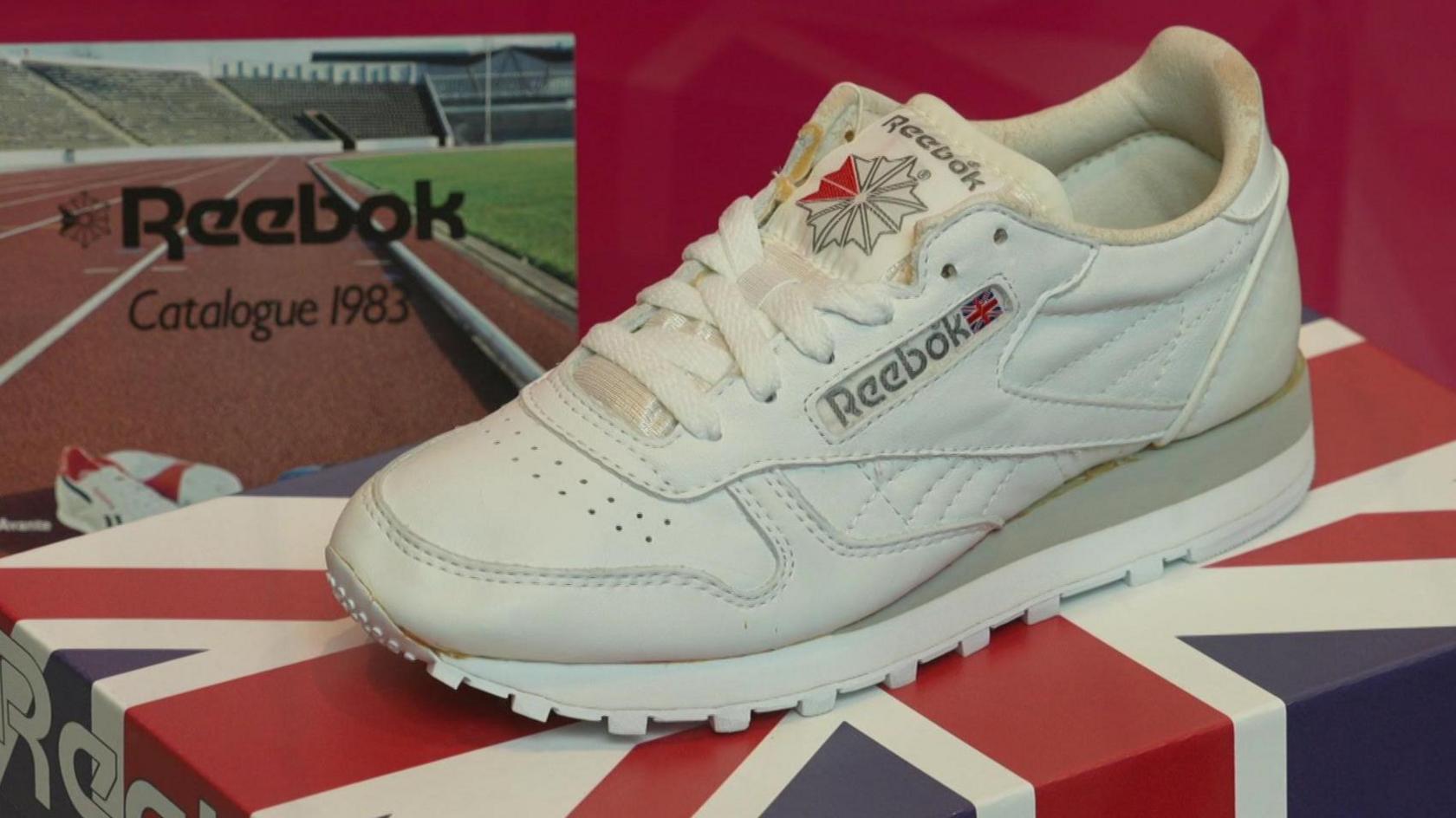
Reebok remains one of the most recognised sports brands in the world
Having Reebok on the doorstep meant they were popular with local runners including Ron Hill, from Bolton, who won the 1970 Boston marathon in a pair.
The company has since been bought by American firm Authentic Brands Group - but Joe remains hopeful that the business will return to its local roots.
"It will come back to Bolton. Just watch this space," he says.
"We're going to come back, I'm sure. Everybody keeps on saying, why don't you get Reebok back?
"Well, we've passed the message on. Let's see where it gets to."
The exhibition at Bolton Library also features the story of Norman Walsh, who while working at J.W. Foster and Sons designed a shoe worn by the British team at the 1948 London Games.
Get in touch
Tell us which stories we should cover in Greater Manchester
Listen to the best of BBC Radio Manchester on Sounds and follow BBC Manchester on Facebook, external, X, external, and Instagram, external. You can also send story ideas via Whatsapp to 0808 100 2230.
- Published23 February
